The US dollar rebounded strongly this week and is expected to record its best performance in a year, while the yen and the euro were hit hard by political turmoil.
2025-10-10 16:00:27
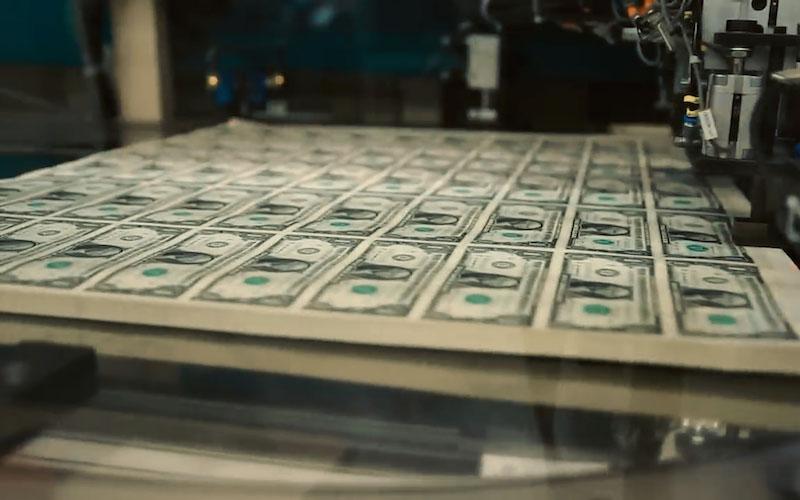
The US dollar rose against the trend, and the government shutdown did not shake its foundation
The US dollar's composure
The US dollar index has performed strongly this week, remaining remarkably stable despite the US government shutdown entering its second week. During the Asian and European trading hours on Friday (October 10), the US dollar index retreated slightly, currently trading around 99.33, still near Thursday's two-month high of 99.55. It remains up 1.7% so far this week and is on track for its best weekly performance in a year.
The dollar's strength was helped by weakness in the euro and yen, as well as a market reassessment of the Federal Reserve's policy. Minutes from the Fed's September meeting showed officials agreed that risks to the U.S. job market were sufficient to justify a rate cut, but caution about high inflation tempered market expectations for further aggressive easing.
Karl Schamotta, chief market strategist at Corpay, pointed out that recent hawkish remarks from Federal Reserve officials have prompted investors to readjust their expectations for monetary policy.
The shadow of a government shutdown
The US government shutdown has lasted longer than expected, and Trump said on Tuesday that the government plans to cancel several projects due to the shutdown and will announce details of layoffs in the coming days. The shutdown has delayed the release of the September non-farm payroll report and other key economic data.
Data from the Polymarket platform shows that there is only a 26% probability that the government will resume normal operations in the next week. Despite this, the market reaction to the shutdown has been relatively limited.
Lou Brien, a strategist at DRW Trading, believes that if the shutdown lasts too long, it could drag down U.S. economic performance, putting pressure on the dollar. He also predicts that the dollar may regain its weakness due to a weak job market and the Fed's shift to easing policy, especially if a dovish chairman replaces Powell next year, the downside risk to the dollar will increase further.
Fed Policy Trends <br/>According to the CME FedWatch tool, the market is pricing in a 95% probability of a 25 basis point rate cut at the Fed's October 28-29 meeting, but the probability of another rate cut in December has fallen to 80% from 90% last week. This suggests that market expectations for an easing Fed policy are cooling, providing support for the dollar.
Despite lingering concerns about the deteriorating U.S. fiscal situation and slowing economic growth, and the possibility that Trump's tariff policy will deter investors from U.S. assets, the dollar has paused its decline since late June and is consolidating against major currencies.
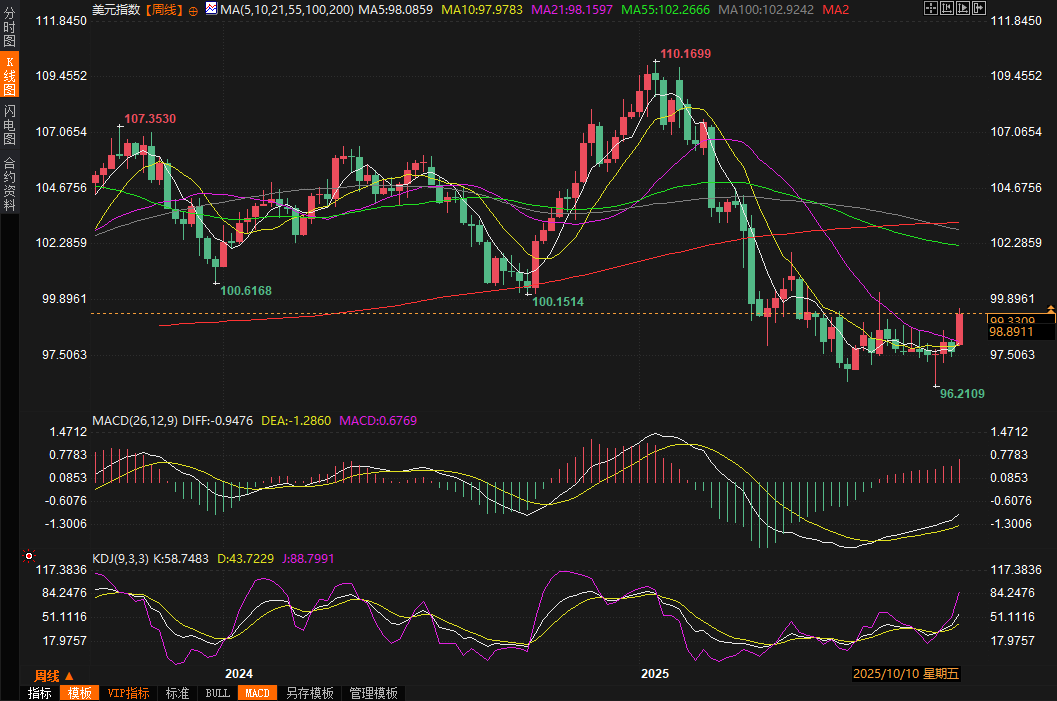
(US Dollar Index Weekly Chart, Source: Yihuitong)
Japanese political situation: Hardliners come to power, the yen plummets
Sanae Takaichi's "Prime Minister Dream" and the Yen Crisis
Political turmoil in Japan has become a major focus in the foreign exchange market this week. Hardline conservative Sanae Takaichi won the Liberal Democratic Party presidential election, paving the way for her to become Japan's first female prime minister. Her victory has fueled market expectations of massive fiscal spending and a resumption of loose monetary policy, putting pressure on the yen. The yen is expected to fall nearly 4% against the dollar this week, its biggest weekly drop since early October 2024. During European trading on Friday, the dollar edged down 0.1% against the yen, currently trading around 152.84, having earlier reached 153.27, its highest level since mid-February.
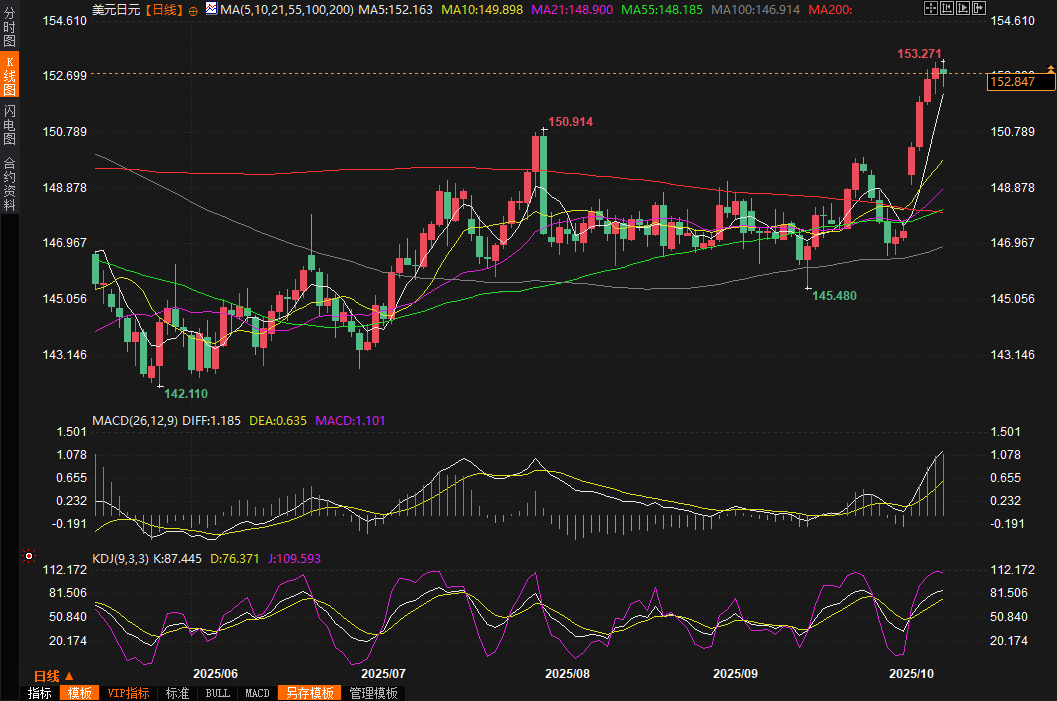
(USD/JPY daily chart, source: Yihuitong)
The Bank of Japan's Dilemma
Sanae Takaichi said on Thursday the Bank of Japan should set monetary policy independently but in line with government goals. She stressed she did not want the yen to fall too much, but her comments failed to boost market confidence in the yen.
Traders estimate that the probability of a Bank of Japan rate hike in December is only 45%, and a definitive 25 basis point increase may not occur until March of next year. Mohamad Al-Saraf, a foreign exchange researcher at Danske Bank, believes the Bank of Japan may choose to remain on hold this month, but may raise rates again in December due to high inflation and a low interest rate environment. He noted that Japan's inflation remains above target, while interest rates remain low, providing justification for further tightening.
The shadow of a postponed prime ministerial election
According to sources from the Liberal Democratic Party, Japan's parliament was originally scheduled to vote on a new prime minister on October 15, but due to intense negotiations within the ruling coalition, the vote may be postponed. This uncertainty has further exacerbated the yen's weakness and hit investor confidence in Japan's economy and monetary policy.
French chaos: Eurozone "time bomb" triggers market panic
A change of prime ministers and an escalating political crisis <br/>French political turmoil was the primary driver of the euro's weakness this week. Jean-Claude Le Corny became France's fifth prime minister in two years, but resigned just hours after his cabinet was announced, setting a record for the shortest-lived government in modern French history.
French President Emmanuel Macron's office announced that a new prime minister will be appointed within 48 hours, but the political deadlock has fueled market pessimism about France's fiscal consolidation prospects. France, with the highest budget deficit in the eurozone, reached nearly 6% of GDP last year, far exceeding the EU's 3% ceiling. The ongoing political instability is hindering the implementation of fiscal austerity plans, further exacerbating market concerns.
Euro hits bottom
Dragged down by the political crisis, the euro fell to a two-month low against the dollar this week. It stabilized during the Asian and European sessions on Friday and is currently trading at 1.1575, close to the low of 1.1541 hit on Thursday. It is still down 1.4% so far this week, the biggest weekly drop in 11 months.
Market analyst Robert Howard predicts that France's political instability will continue to weigh on euro bulls, and predicts the euro/dollar exchange rate will remain below 1.20 by year-end. Widening fiscal deficits and political uncertainty are undermining investor confidence in the eurozone's economic outlook, making a short-term recovery difficult for the euro.
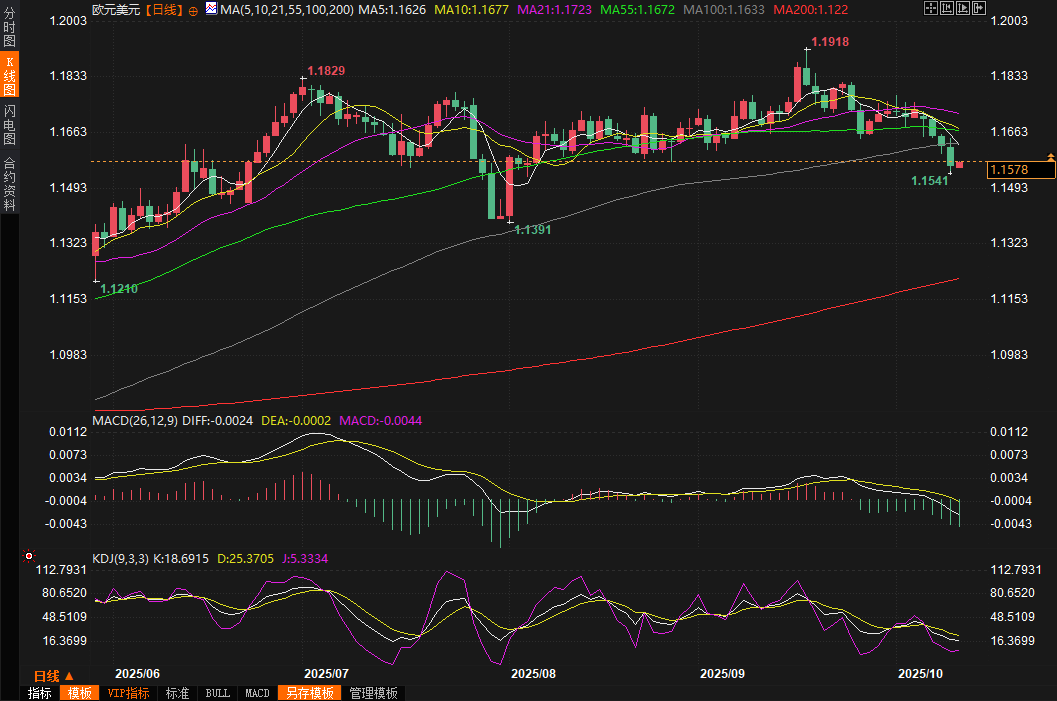
(Euro/USD daily chart, source: Yihuitong)
New Zealand unexpectedly cuts interest rates: NZD plummets, is the global easing trend resuming?
This week, the Reserve Bank of New Zealand unexpectedly cut interest rates by 50 basis points and signaled further easing measures in response to recent deteriorating economic data. The New Zealand dollar plummeted to a six-month low of approximately 0.5733 against the US dollar. This move not only shocked the market but also sparked speculation about the global trend of monetary policy easing. Combined with the policy moves of the Federal Reserve and the Bank of Japan, the global foreign exchange market is at a crossroads of uncertainty.
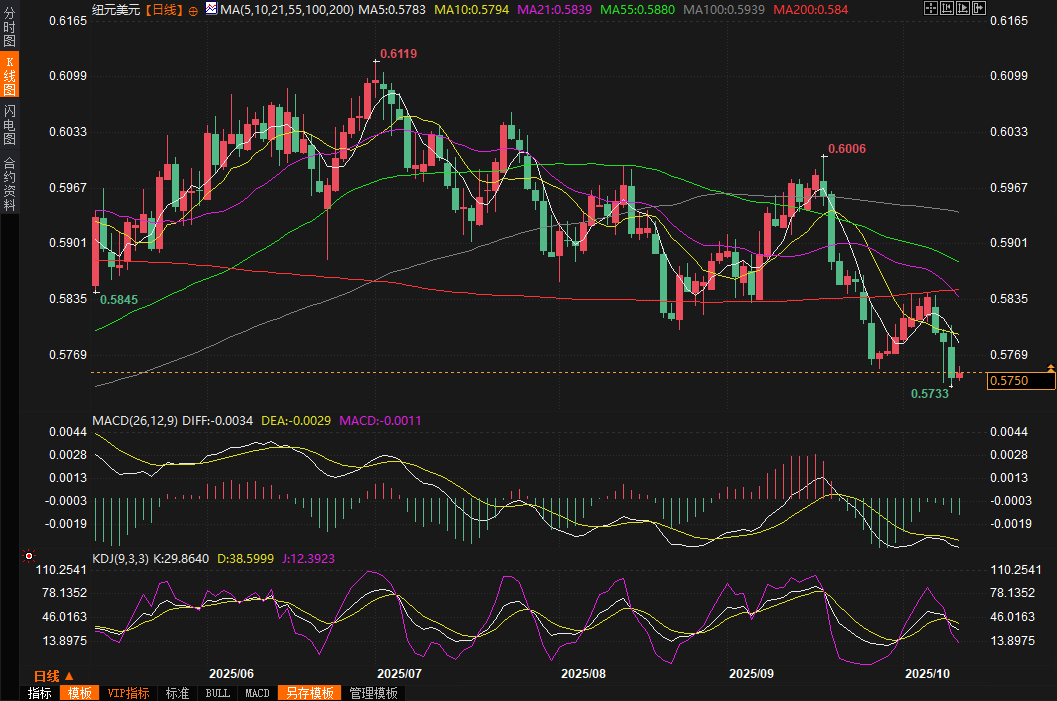
(New Zealand dollar against the US dollar daily chart, source: Yihuitong)
Summary: The foreign exchange market is changing rapidly, and the US dollar is the leader this week
This week, the global foreign exchange market saw a remarkable turn of events, spurred by a confluence of factors. The US dollar, bucking the trend, rose, bolstered by weakness in the euro and yen, poised for its best weekly performance in a year, despite the lingering shadow of the US government shutdown. Political unrest in Japan and the rise of Sanae Takaichi sent the yen tumbling, while the political crisis in France mired the euro. Meanwhile, the Reserve Bank of New Zealand's unexpected interest rate cut fueled global easing.
Looking ahead, the Federal Reserve's policy direction, political developments in Japan and France, and the duration of the US government shutdown will all be key variables influencing the foreign exchange market. Investors should closely monitor these developments to stay on top of the foreign exchange market and prepare for future market volatility.
At 15:58 Beijing time, the US dollar index is currently at 99.30.
- Risk Warning and Disclaimer
- The market involves risk, and trading may not be suitable for all investors. This article is for reference only and does not constitute personal investment advice, nor does it take into account certain users’ specific investment objectives, financial situation, or other needs. Any investment decisions made based on this information are at your own risk.





















